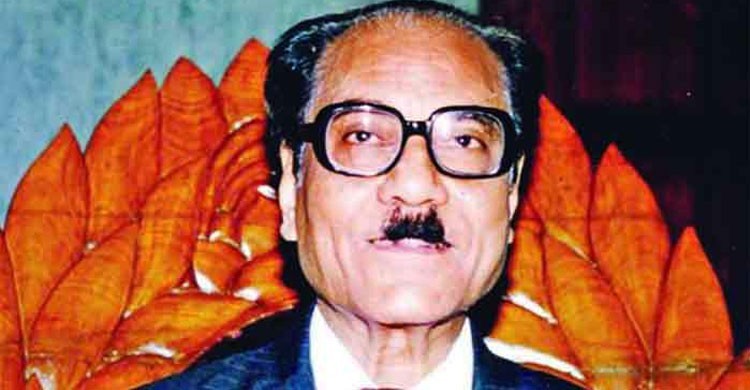Ex-President Justice Shahabuddin passes away
19 March 2022, 11:32 am | Updated: 24 November 2024, 11:50 am

Former president Justice Shahabuddin Ahmed passed away at the Combined Military Hospital on Saturday morning.
Supreme Court spokesperson Mohammad Saifur Rahman told the media that the former president breathed his last at 10:25 am.
Chief Justice Hasan Foez Siddique expressed his profound shock at the death of Shahabuddin and prayed for the salvation of the departed soul.
He also conveyed his sympathy to the bereaved family members.
Shahabuddin Ahmed was born on 1 February 1930 in Pamal village of Kendua, Netrokona. His father Talukdar Resat Ahmed Bhuiyan was a philanthropist. After passing the matriculation and intermediate examinations he took admitted into the University of Dhaka in 1948, obtained a bachelor's in economics in 1951 and master's in international relations in 1952 as a resident student of Fazlul Haq Hall. He attended a special course in public administration at the University of Oxford.
Shahabuddin Ahmed joined the Civil Service of Pakistan in 1954, completed training in the Lahore Civil Service Academy and at the University of Oxford. He was sub-divisional officer of Gopalganj and Natore. He was the additional deputy commissioner of Faridpur.
In 1960, he was transferred to the judicial branch. He worked as an additional district and session judge of Dhaka and Barisal, and as district and sessions judge of Comilla and Chittagong. In 1967, he served as a registrar of the High Court of the then East Pakistan in Dhaka. He was elevated to the bench of the High Court on 20 January 1972. Acted on deputation at the Labour Appellate Tribunal for two years, 1973 and 1974.
He was appointed a judge of the appellate division of the Supreme Court of Bangladesh on 7 February 1980 and was confirmed in this office on 15 April 1981. Ahmed was the chairman of the Commission of Inquiry established under the Commission of Inquiry Act on police firing on the students in mid-February 1983. He was the chairman of the National Pay Commission in 1984 and submitted a report on the basis of which upward revision of the pay scale was made.
Ahmed was appointed the Chief Justice of Bangladesh on 14 January 1990. Following a public agitation was led by opposition political parties for changing the autocratic system of government and for the resignation of the government headed by the then President Hussain Muhammad Ershad, on 6 December 1990, the-then vice-president Moudud Ahmed resigned and Ahmed was appointed the new vice-president. Later that day Ershad resigned and Ahmed took over as the acting President of the country.
He was chosen by all political parties including Ershad to hold the interim government that would oversee the neutral election to parliament. He administered the oath of office to his council of advisors at Bangabhaban on 9 December 1990 and held the first meeting on 15 December 1990. After the Fifth National Parliamentary Elections held on 27 February 1991, Ahmed handed over the parliamentary ruling power to the newly elected Prime Minister Khaleda Zia. He resigned from the presidency on 9 October 1991 and the next day returned to his previous post of chief justice from which he eventually retired on 1 February 1995.
Ahmed was elected president unopposed on 23 July 1996 having been nominated by the Awami League government and sworn in on 9 October the same year. He retired from the office on 14 November 2001. When the Awami League lost the Parliamentary Elections in 2001 he was dubbed a "betrayer" by Sheikh Hasina. He lamented “I am an angel if anything is done according to their desire, otherwise I am a devil”.






















